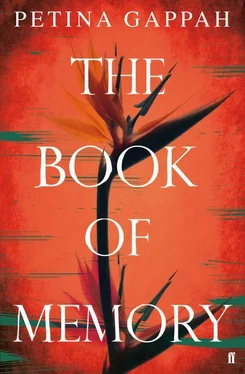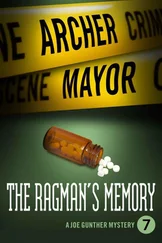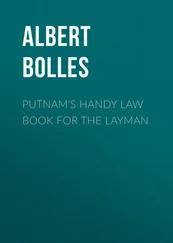Lloyd’s unstinting generosity complicated matters, particularly after the business with Zenzo. There was no question that his house was very clearly, and openly, my home. He gave me an expensive and necessary education that was good enough to get me into an elite university. Under expert medical care my skin bloomed until both Simon and Zenzo could say, with some sincerity, that I was beautiful. I discovered books that became as necessary to my being as breathing.
Living with him in that house, I fell in love with history. Through him, living in his world, I got a sense of a world that was bigger than myself. Could there have been love?
If I had not seen that passing of notes between my parents, I would have believed … I don’t know what I would have believed. And if there had been no Zenzo. Maybe there could have been love between us, not the prurient love of funny things imagined by Officer Dimples, but love in its simple purity of one being opening up to another, with no expectation beyond the gift of that love.
In the moments when I forgot how we came to live together, I believe that I came to love him. What had been a tentative flowering might have turned into a full blossoming. Then Zenzo entered our lives, and everything wilted.

I read in one of your columns that, on the night before their execution, death row prisoners in one of the Southern states, Texas or Georgia, I can’t recall, will usually request, for their last meal, the foods that recall their childhood. And because a disproportionate number of death row inmates are black prisoners from the rural South, these last suppers tend to be the food of the poor, fried chicken and collard greens, grits and sweet potato pie.
I don’t think I would want any food on the night before that morning. I imagine that it would taste like ash. And how would I ever eat that last mouthful, the last morsel, knowing that it is the last that I will ever eat? I would want just wine, I think. No — vodka, perhaps: strong, cheap vodka, and lots of it, enough to knock me out the night before and make every step the next morning shine with light.
When I asked Loveness on Sunday if we had the last supper tradition here, she clucked her tongue and said, ‘You know we do not talk about that here.’
Any time that I approach the subject of my sentence, Loveness acts like a particularly judgemental hostess whose least important guest has been caught in a social faux pas. When I told her that, in America, people eat what they want on their last day, she said again that I should not think such things, and besides, I should hurry and leave my cell because I had a visitor.
I was surprised. As I told you before, I have never had a visitor in the two years that I have been here, apart from the Goodwill Fellowship people. You and Vernah Sithole do not count as visitors because you come at the special dispensation of the Chief Superintendent. As you saw last week, you can come in and out as long as you announce your planned visit and you don’t visit more than twice in one week. So you are not visitors in the ordinary sense.
I thought it might be one of the Goodwill Fellowship women, though I was sure it would not be the one that they sent last time. ‘Are you coping with prison conditions now?’ the woman who came to see me had asked. ‘Are you missing anything, anything at all?’
Her face was a symphony of manufactured sympathy. Something about her perfect assurance made me savage. Am I missing anything, anything at all? I mean, really. Not anything at all. Just everything. Books, books, books, books. Soap. A warm bed with clean sheets that smell of fabric softener. A hot shower. Sunscreen. The plopping sound produced by a Chablis straight from the fridge. Mosquito spray. The smell of old archives. The curling loops on old manuscripts. The cream-and-green ordinariness of my Tilley hat. Toothpaste. A comb. A comb with all its teeth attached. The Internet.
‘You know what I really miss?’ I said, and put on my most wistful look. I may even have managed a shimmer of tears.
She leaned forward, her face a rictus of concern, the Bic pen on her clipboard ready to note down desires she knew the Goodwill Fellowship could not possibly fulfil, her left hand on the verge of stretching out to clasp mine in solidarity.
‘What I really long for, more than anything, what I miss above all other things,’ I said, ‘is a good, hard fuck.’
The outstretched hand was withdrawn. Her face collapsed into an O of shock. She fumbled for her clipboard and moved to record the longings of the next prisoner. I felt terrible until my irritation took over. What did she know, this little peach-faced do-gooder? It takes more than good wishes; it takes a spectacular failure of the imagination to ask if there are things we miss. Better to say nothing, to bring Bibles and leave than to open wounds that you cannot possibly heal.
But it was not the Goodwill Fellowship this time. Instead, my visitor was a student from one of the universities here. Synodia was not pleased to have another visit to supervise. Visiting days are on the first and third Sundays of every month. They are often deeply distressing, as so often the visitors bring bad news, and the guards have to threaten everyone and shout louder than usual to get everyone to settle. On those Sundays, the women who will have seen family during the day mostly spend the night in fits of weeping, which irritates the others and causes friction. That is when most of the fights in C cell happen.
My visitor had two letters from her university, one asking whomever it concerned to co-operate with her research, the other from the Prison Commissioner, approving her to see me, on condition that it was to be in the presence of a guard. Synodia was not pleased to hear her ask for a special room. As the guards were all occupied, she marshalled us into the canteen with all the others. We sat at one end of the room while Synodia stood over us with a sour face.
Synodia’s manner had clearly unsettled my visitor. Without looking directly at me, she stammered something about the sociopathology of the female murderer. She turned to open her laptop bag.
‘Eh, what are you handing her over there? I have to see what is in that bag,’ Synodia said.
‘But I have already been searched,’ the student responded.
‘And you will be searched again.’
At Synodia’s command, the girl took out everything she had and put in on the table. As Synodia looked through her things, she kept a running commentary on how important it was for the student to know that there was nothing special about murderers like me, how it was important to make sure that murderers like me knew their place, and that the place for murderers like me was not in any fancy books written by students at a university, no matter how clever and educated they thought they were, but here in Chikurubi, where murderers like me belonged.
The student put everything back into her bag but her notepad and pens. Synodia was clearly getting to her. When she dropped a pen, she jumped as though to escape her own skin. She licked her lips and looked at her notebook. I waited for questions that did not come.
Eventually I said, ‘So, Clarice.’
She looked at me blankly and said, ‘My name is not Clarice.’
‘Hannibal Lecter?’ I said.
‘Sorry, I don’t get you.’
‘“I’m having an old friend for dinner”?’
‘Sorry?’ she said again.
‘The Silence of the Lambs?’
She looked about the room as though the silence that I spoke of was all around us.
‘Sorry?’
Читать дальше













